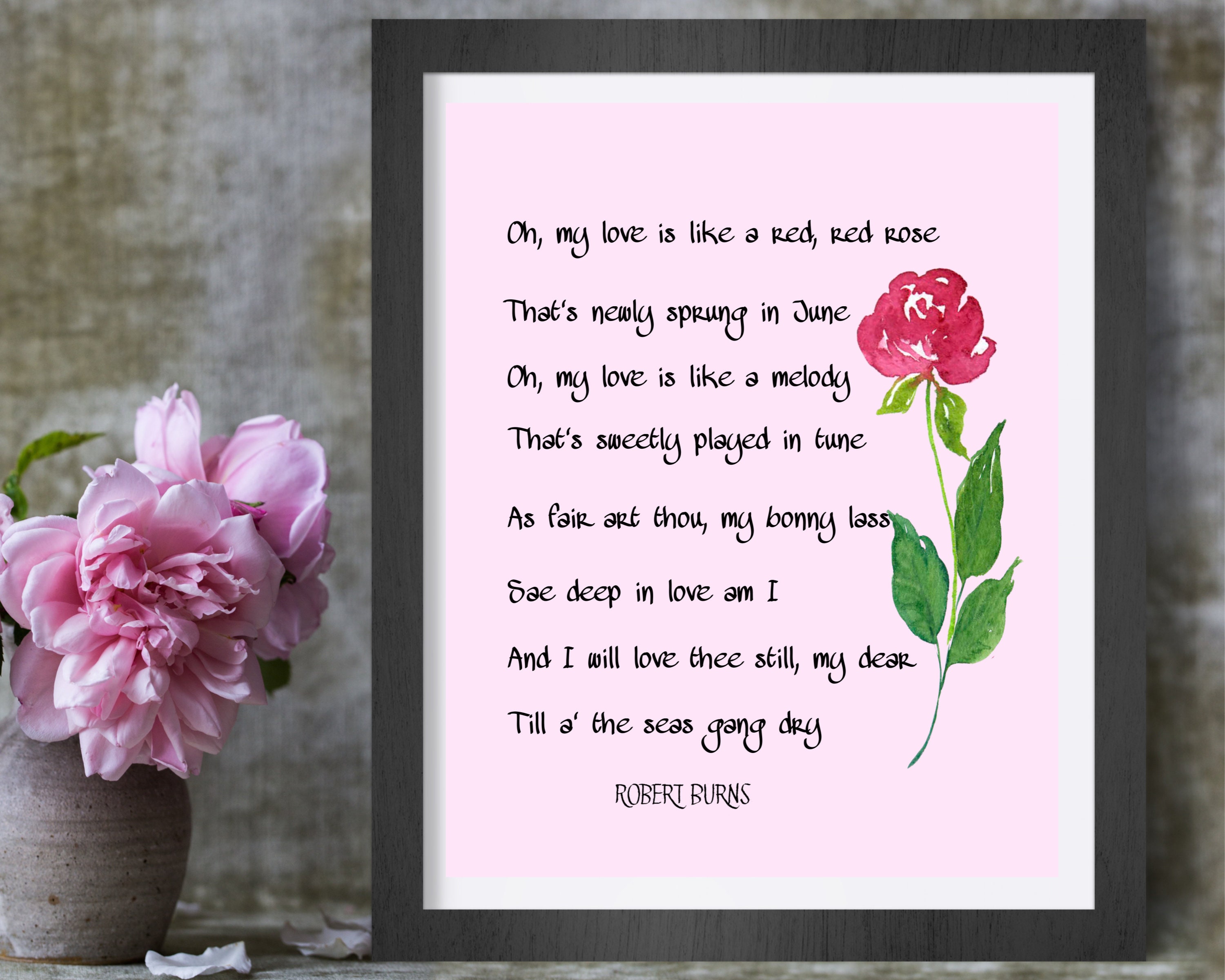



There is not the least doubt in the poet’s exaggerations. His final contention is clearly heard in the next two lines, He affirms to her that he will continue to love her till ‘the seas gang dry’ and ‘the rocks melt wi’ the sun’. It will remain ever with him, for this is deep and positive. Here, he goes to assert that his love will not be going to extinguish or grow pale with the passage of time. It contains a good deal of his emphasis on how much does he love her. This sensuality in love seems to echo Spenser and anticipate Keats.īut Burns’ love is not exhausted merely in the appreciation of the physical charm of his beloved.

This is also found continued in his assertion- ‘As fair art thou, my bonie lass’. There is no hesitation or suppression on part of the poet in his praise of the physical beauty of lady concerned. To him she is all beautiful and fresh, like ‘a red rose, blooming in June’ and bears the melody of a sweetly played tune. He is all lost in his love for her and much of this lies in her loveliness and freshness. In this respect, as already suggested, his song has a close resemblance to Spenser’s sonnets of the Amoretti series.īurns’ song begins with an unqualified admiration for his ladylove. Here Burns’ poem fulfils the just condition and brings out the intensity and the eloquence of his love for his beloved woman.īurns speaks in the present poem of his love, that is woman whose beauty he celebrates and his depth of love for her. The term love poem is, however, interpreted mostly as a poem of sex love of the love of one sex for another. A poem may be on absolute love, divine love, filial love, or love for nature as also a man’s love for a woman and vice-versa. Of course, there is a point to be noted in connection with the interpretation of a poem on of love.


 0 kommentar(er)
0 kommentar(er)
